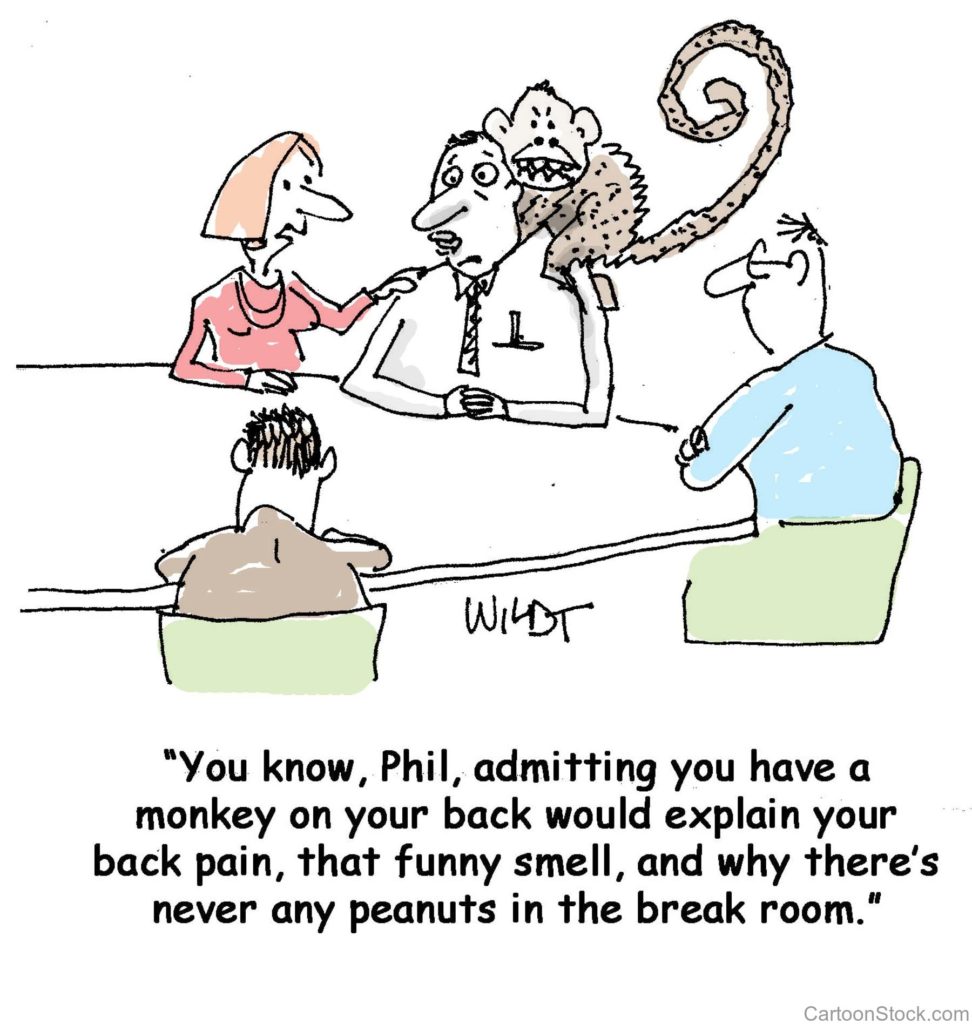 In a now-famous article titled “Management Time: Who’s Got the Monkey?” (Harvard Business Review, November, 1974), authors Oncken and Wass created a clever and memorable illustration on how a person can unwittingly accept responsibility for activities that should be handled by others.
In a now-famous article titled “Management Time: Who’s Got the Monkey?” (Harvard Business Review, November, 1974), authors Oncken and Wass created a clever and memorable illustration on how a person can unwittingly accept responsibility for activities that should be handled by others.
The “monkey” is simply the next move. It is not the problem, or the project, or the goal, or the desired result; it is the next step.
Read the three scenarios below and picture a monkey leaping from the back of the direct report, teenager, and repairman to the shoulders of the boss, mom, and homeowner. Once you visualize the long-tailed primate jumping from one person to another, you’ll never forget the illustration. Since becoming aware of this phenomenon, sometimes in conversations I can almost feel the weight of a monkey as it jumps from my back onto someone else’s or from their back to mine.
- Imagine that you’re walking toward your office when one of your direct reports approaches and says, “I’m not sure how to handle a problem we’re having on a project.” You reply, “Let me think about it and I’ll get back with you.” The monkey is now on your back.
- Imagine that your teenager approaches you and says, “Mom, I can’t find my baseball shirt.” You reply, “I may have put it in the washing machine, let me check.” The monkey is now on your back.
- Imagine that you’re having some repair work done at your house and the repairman says, “I’m not sure this repair will meet city code.” You reply, “I’ll call the city and ask.” The monkey is now on your back.
I fall into this monkey-on-my-back trap often because 1) I like to do things myself, 2) sometimes I think I can do a better job at certain things than others can, and 3) I’m a people pleaser so I’m inclined to do people’s jobs for them.
When we allow employees, children, workers, and friends to handle their own monkeys, they will grow, acquire new skills, become more responsible, and more work will get done. And we’ll have more time to do those things that only we should do and more discretionary time to enjoy life.
Here’s a copy of the article.
[reminder]What are your thoughts about this essay?[/reminder]
[callout]Here’s an article published in the New York Times (April 29, 2018) that will warm the heart of all dog-owners (and explain to the world why we prefer dogs). [/callout]

Hey Don,
Good article. I was reading through it and thought, “Oh, that’s what the monkey is.” Sometimes we take the monkey willingly. Sometimes we don’t really have a choice. It’s good to have an illustration and language to describe this aspect of life. Thanks.
Tristan, thanks for taking the time to write. Don